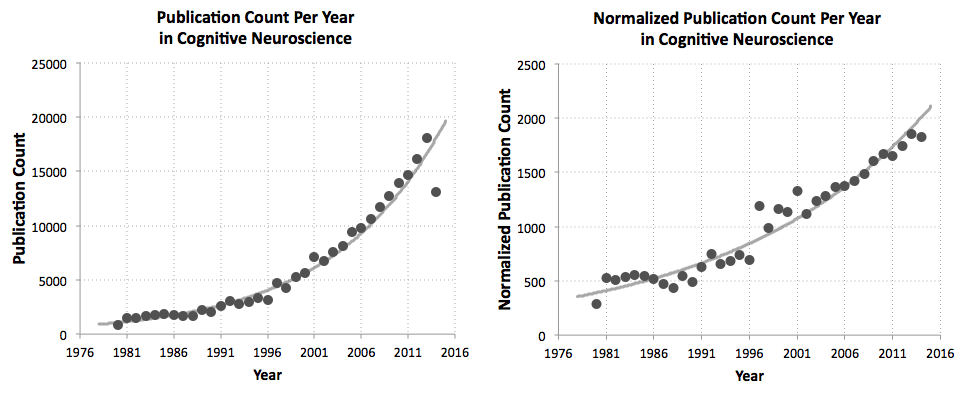Originally answered on Quora: How true is the 2014 quote “We have learned more about the thinking brain in the last 10-15 years than in all of previous human history”?
I was asked to answer this question on Quora back in September 2014 because of my background in neuroscience. While a few people already gave some good answers about why they believed it to be true, no one provided any data to support their hunch. I decided to perform a little research and was able to extrapolate that the increasing popularity of neuroscience has given us the illusion of an explosion of knowledge. In reality, new knowledge of how our brain works has only been growing monotonically more or less! You can read my full answer below.
Assuming the number of pages in Principles of Neural Science by Eric Kandel, James H. Schwartz, and Thomas Jessell is a satisfactory representation of our cumulative understanding of brain function, it looks like after the 2nd edition in 1985, our knowledge has only been monotonically expanding. In order for the quote to be true, there would need to be an exponential explosion of knowledge in the last decade and a half.
If we’re generous and combine the knowledge gained since the last two editions (over 20 years of research), the total number of added pages is just 569 relative to 1191 pages of “old knowledge.” Even if we did try to account for older material that could have been edited out – whether due to being outdated or greater conciseness – it’s very unlikely to shift the ratio in the other direction.

Of course, the Principles of Neural Science contains only the fundamentals, so page counts won’t include our understanding of the “thinking brain” based on working theories. Also, there is minimal coverage of the cognitive neurosciences.
If we count up the number of publications in just cognitive neuroscience, we do see an exponential trend. Indeed, the area under the curve between 2000 to present day is substantially larger than before 2000. We see this even for normalized publication counts that account for more scientists and publishers overall, but the curve is indeed a lot flatter. I’ll leave it up to you to decide re: whether publication count would be a good proxy for the state of our knowledge, as answering that would require a more thorough answer for another time… For all intents and purposes, it’s fine as a practical “guestimate” but with caveats.

